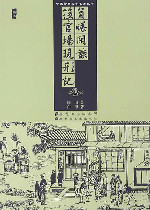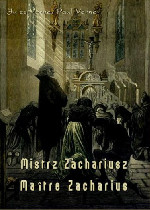
八回,是李伯元《官场现形记》的续编。本书光绪三十三年(1907年)到光绪三十四年(1908年)连载于《月月小说》第九号和第十五号至二十一号上。在光绪三十四年由小说保存会出版单行本二册题为“冷泉亭长著”。单行本卷首有作者自序回目前有题词署名“澬江陶报癖”。小说受当时晚清改良主义的影响只着眼于暴露虽然批评了皇帝谴责了官场但其根本目的不是为了推翻封建统治而是规劝、改良。这在当时资产阶级革命派已经登上历史舞台之时无疑是保守的消极的。但小说提出了要重农工兴商业发展经济提出经济的强大要比军事强大更重要“盖今日世界农工商发达虽兵力稍薄亦足以自存农工商不兴虽兵力甚雄终不足以自保。”这些主张明显地比《官场现形记》更进步。

"Master Zacharius, or the clockmaker who lost his soul" (French: Maître Zacharius ou l'horloger qui avait perdu son âme) is an 1854 short story by Jules Verne. The story, an intensely Romantic fantasy echoing the works of E. T. A. Hoffmann, is a Faustian tragedy about an inventor whose overpowering pride leads to his downfall. On a small island in the middle of the Rhone within the town of Geneva, the clockmaker Master Zacharius lives with his daughter Gerande, his apprentice Aubert Thun, and his elderly servant Scholastique.